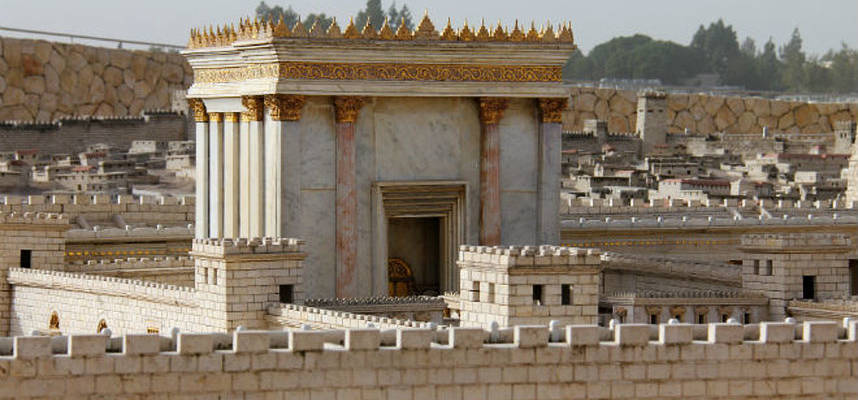The 10th of Tevet, which this year falls on January 7, is a fast day calling for introspection and self-improvement. We want to become worthy of God’s rebuilding of the Holy Temple in Jerusalem in our lifetime.
By Rabbi Ari Enkin, Rabbinic Director, United with Israel
On January 7, the Jewish community worldwide is observing the fast of “Asara b’Tevet” – the 10th day of the Hebrew month of Tevet. Although the shortest fast (in the Northern Hemisphere), it is exceptionally unique.
For example, it is the only fast that can ever fall on a Friday. Furthermore, although not possible due to the arrangement of the current Jewish calendar, if it were ever to fall on a Saturday – Shabbat – we would be forced to observe it. This puts the fast of Asara b’Tevet virtually on par with Yom Kippur, which is the only fast that is ever observed on a Shabbat.
The reason for the fast of Asara b’Tevet is that it was on this day that the evil Babylonian king Nebuchadnezzar besieged Jerusalem in about 600 BCE. This continued with the breaching of the walls of Jerusalem several years later, for which there is a fast day (17th of Tamuz), and, finally, the destruction of Jerusalem, for which we fast as well (Tisha b’Av).
What is not very well known is that some people have historically fasted for three days during the month of Tevet: the eighth, the ninth and the tenth. However, it is only the tenth of Tevet that is an official, binding fast day. Nevertheless, all three are considered tragic.
On the 8th day of Tevet, King Ptolemy II (285 – 246 B.C.E.) locked up 72 rabbis in 72 different rooms and forced them to translate the Torah into Greek, a work now known as the Septuagint. Miraculously, all the rabbis came up with the exact same translation. However, it was the first time that the Torah, the Five Books of Moses, became accessible to outsiders, which opened the Torah to all kinds of false and corrupt interpretations that have been a source of anguish for the Jewish people to this very day.
On the 9th day of Tevet, the prophet Ezra died. According to some sources, the prophet Nehemiah died on this day as well. Ezra, a leader of the Jewish people, was comparable to Moses, and as such his death left a terrible void in direction. The religious and spiritual level of the Jewish people declined drastically after his passing. So, too, Ezra was the last of the prophets, which adds yet another dimension of sadness to this day.
Although only the 10th of Tevet is observed as a fast day, the special liturgy recited on this day includes mention of the tragedies of the 8th and 9th days as well, making the Tenth of Tevet a major, multifaceted fast day. Those who are pregnant or ill are not required to fast. For the rest of us who have the good fortune of health – we need to fast!
The fast begins at dawn and ends at nightfall (not to be confused with Yom Kippur or Tisha B’av, which are 25-hour fasts and observed from the evening of one day until the evening of the next).
A fast day is not merely a day when we forgo our morning coffee. It is a day for introspection and self-improvement. We want to become better people and worthy of God’s rebuilding of the Holy Temple in Jerusalem in our lifetime. Our sages tell us that when the Messiah comes, these fast days will be turned into days of celebration. May it happen soon!
Send 'Warm Winter' Care Packages to Israeli Soldiers - They are Cold!
We are honored to thank the young men and women of the IDF who risk their lives every day to defend the citizens of Israel.
Join us in sending winter care packages and personal notes of support to Israeli soldiers who are out in the cold all day.
Warm up a soldier's heart with essential winter wear including fleece jackets. Keep an entire unit warm by ordering 10 packages... The soldiers truly appreciate your love and concern!
Do You Love Israel? Make a Donation - Show Your Support!
Donate to vital charities that help protect Israeli citizens and inspire millions around the world to support Israel too!
Now more than ever, Israel needs your help to fight and win the war -- including on the battlefield of public opinion.
Antisemitism, anti-Israel bias and boycotts are out of control. Israel's enemies are inciting terror and violence against innocent Israelis and Jews around the world. Help us fight back!
























